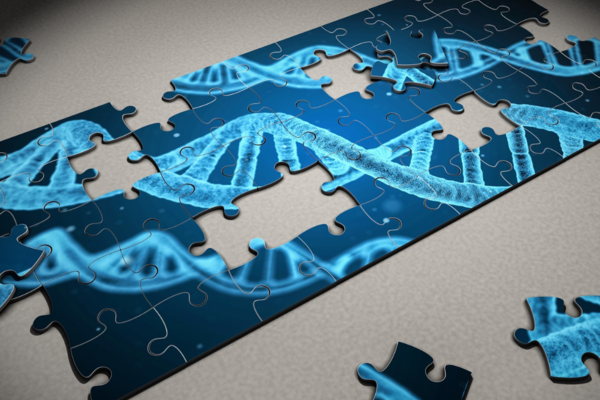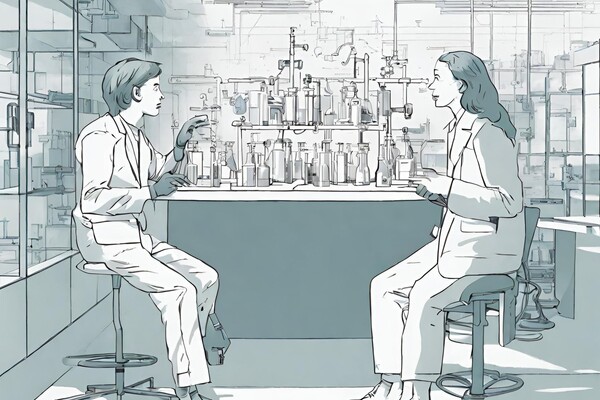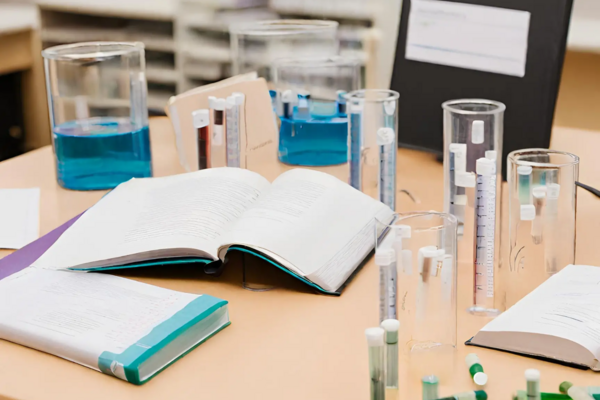To Gene or Not to Gene: The Graduate School Dilemma
Applying to Graduate School

There’s definitely been some progress since my last post. Not only have I finally started my application (woohoo!), but I also had the opportunity to sit down with a faculty member and talk about the application process. Professors can feel daunting to approach, and not only do many students not realize you can approach them, but they also believe you need to “have it all figured out” before you do. I know, I thought I did. But as you all may remember, I still have a long way to go in the graduate school process.
Even though I know I want to go to graduate school, I still have so many doubts. What if I don’t get in? What if this isn’t right for me? Every decision feels like such a big decision. And so, I met with Dr. Ian Scott from the Department of Molecular Genetics (MoGen) to discuss everything graduate school. Dr. Scott is a faculty member at MoGen, and a Senior Scientist in the Developmental and Stem Cell Biology program at the Hospital for Sick Children. His research specializes in cardiac development and regeneration, especially at the cellular and molecular level. With the goal to repair the damaged human heart, Dr. Scott and his team use a variety of developmental biology and genomics-based approaches.
For this meeting, I asked Dr. Scott questions about the application process from his perspective as a faculty member and chair of the MoGen admissions committee and gathered more information about the research MSc/PhD program at MoGen.
What kind of students are you looking for?
One of the most important characteristics would be that they have an idea of what they're getting themselves into. Meaning they’ve spent time in labs, conducted research—not always wet lab research, but really that they’ve carried a project for a while. They have an idea of how science really works and of the pitfalls along the way. We’re also looking for enthusiasm; for science, molecular genetics, and specific labs they may be interested in. We, of course, look for general things like how they do in courses, etc. The letters of reference usually cover if they are a good team player and if they work well in a lab environment. Their ability to learn and grow is emphasized, because that's what we're really trying to do with our MSc and PhD students.
What opportunities are there in the department for students to develop their studies, interests or career goals?
From a career perspective, which is really important, we—the Department of Molecular Genetics, including the Faculty of Medicine, School of Graduate Studies, and more—have a lot of types of events we do for professional development for graduate students. The Graduate Student Association also plays a huge role. There’s a lot of events focused on how to write a CV, how to do networking (always a dreaded term, isn’t it?), etc. Even things on the different types of careers out there and how to find them. For us, we have an annual alumni event where we bring back our alumni who are doing a lot of non-academic types of jobs and they're all doing really cool and interesting things in a lot of different areas of the economy. They come and give talks and meet with our students and just talk about the path they took to get to the careers they're in now, while doing graduate school in our programs. There's also a yearly development plan that our students fill out and use to help talk to their faculty supervisor about what their long-term plans are.
You did your PhD at UofT in Molecular Genetics. What caught your interest in the program?
I did my undergrad at Queens, and every so often, there'd be brochures and things like that in offices. In my case, there was one undergrad course I really liked. I was doing a Biochemistry undergrad, and there was actually one course that was more on the developmental biology side that really interested me. The faculty (Dr. Peter Greer) who taught that had done their postdoc at U of T and he's the one who pointed me towards the department. I visited and interviewed, and that's how I decided to come to Toronto.
What keeps you here now, as a member of the faculty?
You know, the students are fantastic. There's a real collaborative environment in Toronto, which I think differs from a lot of places. I really like that the labs here tend to be more graduate student heavy than, say, in the US, where they might be more postdoc heavy, and I really enjoy working with grad students and collaborating as much as possible as colleagues. There’s the breadth of science here too. It's really cool to learn new things all the time.
Do you have any advice for the actual application process?
Start early and get a sense of what you need to line up. Especially getting reference letters together: carefully going about who would be appropriate references and asking them well in advance of your application date. Because in in many cases, if they haven't written a reference letter for you before for some kind of scholarship or something like that, they'll have to write it from scratch. And perhaps help them out – if there's things that you think would be useful to have in their letters, don't be shy giving that to them or giving them your CV or something to jog their memory. In terms of the statement, be sure to put in information about why you're applying to our program versus just having some kind of generic letter. Why MoGen? Why the program, what kind of labs are you interested in? And also what kind of research have you done and what did you learn from it? It's not so much about techniques you did, but like really, what you did learn. What did you discover? Things don't always work, and what did you learn from things not working? I think those are the two big ones, really. Your transcript is going to be your transcript. If there are extenuating circumstances in your transcript, like if there are outlier grades due to COVID or there was something else that happened, like some health event, or family emergency, it's useful to mention that in the letter. Don't be shy about doing that. If there was something serious that was happening in your life during a certain semester, don't overdo it, but be sure to mention it as well. It's good to provide context.
What do you think makes the department unique?
Until recently, the rotation system was quite unique to our department. Now there's a few other departments at U of T that do this. The rotations coupled with our over 100 faculty across a broad depth of labs really distinguish us. They're doing everything from structural biology to human genetics and basically everything in between. It’s a great opportunity for students. It's a bit daunting to figure out which labs you want to rotate in. But I think it's a great opportunity to sample a lot of science. I always tell students that you only know what you've done in courses so far, or maybe labs you've worked in. I took one class that had a bit of developmental biology in it, and that really sparked an interest in me, which I probably never would have known otherwise. It's really nice to have that opportunity to get exposed to different things and see what works for you. Also aside from the science, just finding a lab environment and a mentor that's going to work well for a student because that's very subjective and personal. Someone who's a great supervisor for one person might not be a great supervisor for someone else. Or a lab environment that works well for one person may not work well for someone else. We're all individuals. That's very important.
Do you have anything you want to say to prospective students who may stumble upon this post?
The first one would be that I know all these milestones seem like critically important choices. Like if I made the wrong decision, I'm going to be limiting myself in some way. And I think at the end of the day, the next steps will happen for you no matter what decision you make. So my first advice would be don't sweat the decision too much. Try and find a good fit for you and do your homework, but don’t think that this is going to be some critical life altering decision. I think that's an important thing to consider because we get lost in the details sometimes. We do have events where we bring in people that we've accepted and they can get to check out the department and talk to some of our faculty members. We arrange that so that they can make their decision in an informed way. That's the nice thing about science: you can always try and do different things.
Second, don't think that you're making a final decision when you're applying. You still have ways to figure out what the best decision is. And if you do, for example, have friends or friends of friends who are already in graduate school in these programs, talk to them openly. Have honest discussions with them about what it's like and use that to inform your decision.
After speaking with Dr. Scott, I’m finally narrowing down the program(s) I want to apply to at MoGen. I don’t know if my decision is the “right one”, but is there a “right” in this case? It was interesting to learn about Dr. Scott’s journey, and reassuring to hear his thoughts on reducing the pressure of this process. I think that’s something we all need to hear. I’ll talk to you all very soon, hopefully with more progress made!
News


